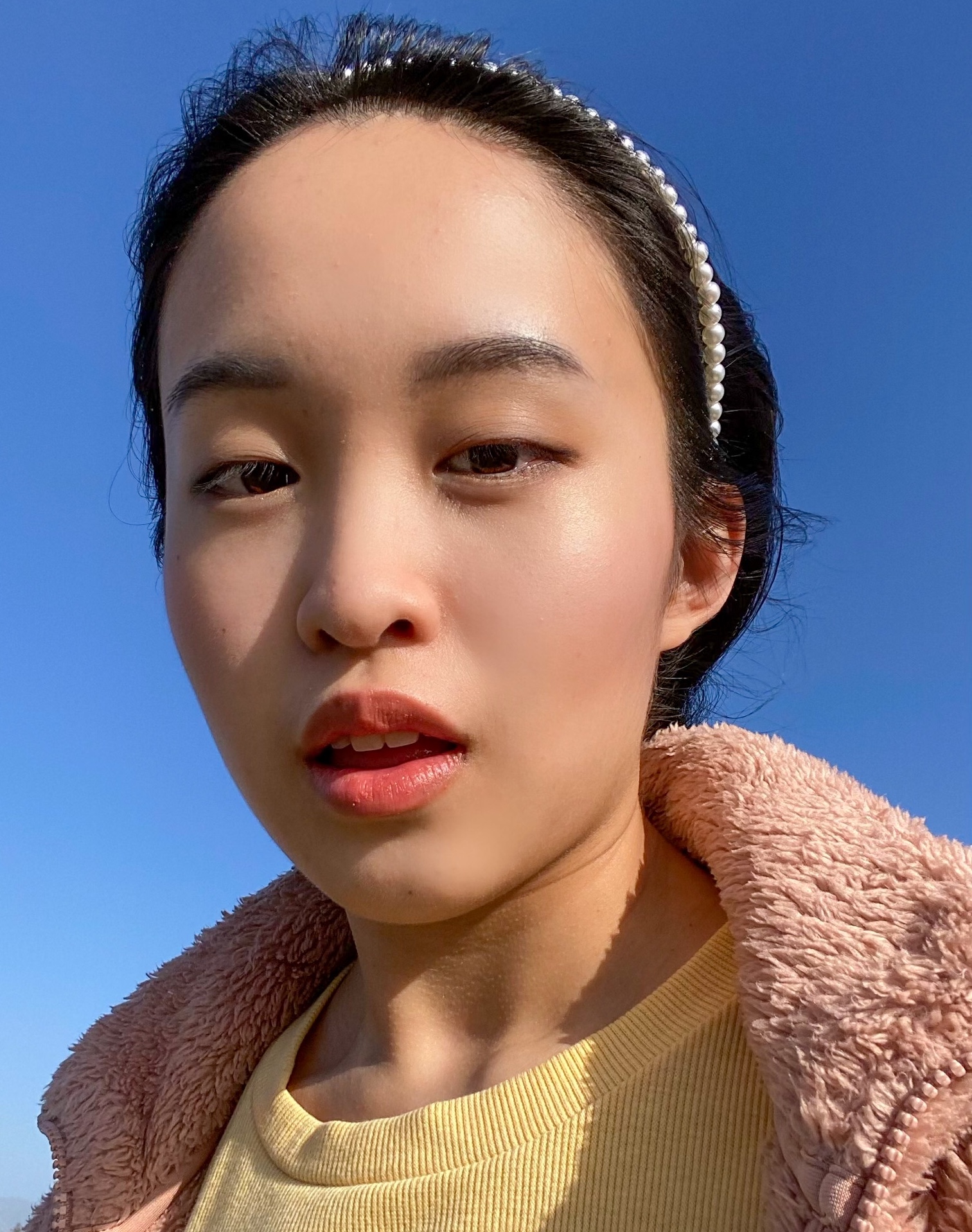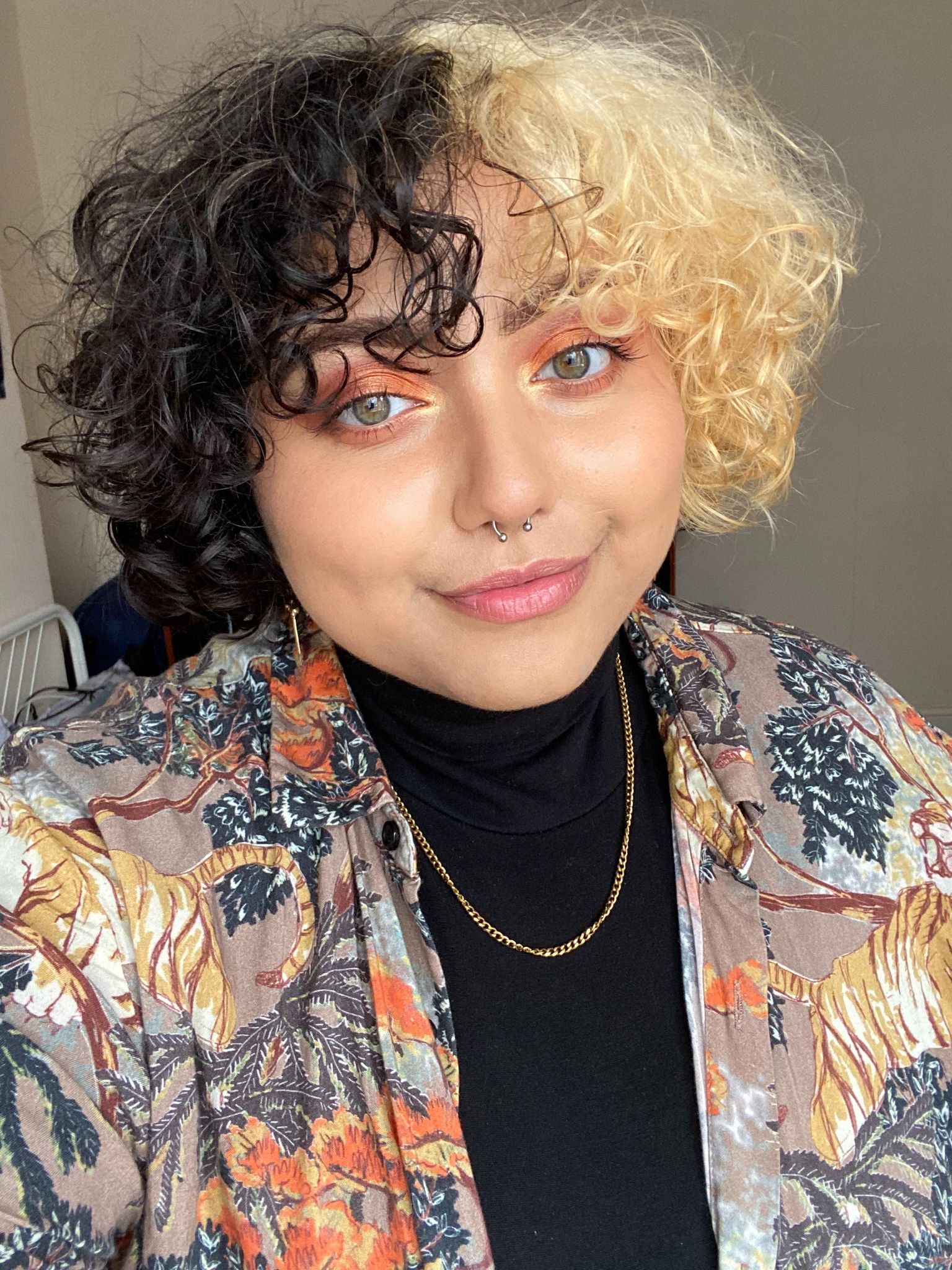National Poetry Month Spotlight: Poetic YA Featuring Black Protagonists
National Poetry Month Spotlight: Poetic YA Featuring Black Protagonists
April is National Poetry Month, and one of the best ways to read poetry during this time is in young adult novels.
Not only are there novels in verse, but there are also books featuring poetry or lyrical writing that enhance the overall narrative. Last year, I spotlighted novels in verse by Black YA authors. Now, here are more poetic books to read to celebrate National Poetry Month.
 Vinyl Moon by Mahogany L. Browne
Vinyl Moon by Mahogany L. Browne
Angel is a young woman who moves to Brooklyn after a romantic relationship hurts her. However, change can be hard when you’re far from the place and people you used to call home. Angel gradually gets to know her uncle and her classmates while discovering Black literature and a passion for creating music mixes. As time passes, Angel begins to fill the holes in her heart with friendship, family, and art.
In between chapters are poems that give you a peek into Angel’s head as she navigates the changes in her life. Some poems deal with self-doubt, while others take up thoughts on family and mindfulness. As the book progresses, you see Angel start to see herself and those around her in a whole new light. This is a tender, uplifting book that shows the how a community of friends, family, and peers is invaluable to personal healing.

Me, Moth by Amber McBride
After losing her family in an accident, Moth goes to live with her aunt, but she still feels alone. Soon she meets Sani, a boy with depression who is trying to figure out where he comes from. Together, the two of them take a road trip in order to find themselves and understand how each of their families’ histories shapes who they are now. This novel in verse is the debut book of Amber McBride and is considered one of the best books of 2021 by Shelf Awareness, NPR, and TIME.
 Muted by Tami Charles
Muted by Tami Charles
Seventeen-year-old Denver dreams of singing well enough to escape her small, white hometown. With her best friends Dali and Shak, she does just that by getting the attention of R&B star Sean “Mercury” Ellis. At first, the perks and the recording time seem worth it—until Denver starts losing her voice in more ways than one. Now, she must decide whether achieving her dream is worth the cost of being exploited.
Partly inspired by the author’s own experiences in the music industry, as well as by news stories, this novel in verse shows how friendship, family, and self-love can keep you grounded in an industry that seeks to diminish Black girls. The book’s honors include features in Essence, Marie Claire, and Bookbuzz.
 Punching the Air by Ibi Zoboi and Yusef Salaam
Punching the Air by Ibi Zoboi and Yusef Salaam
Amal is a sixteen-year-old Black Muslim boy who, along with four other boys, is wrongfully imprisoned for a crime he didn’t commit. Through his gifts for poetry and visual art, Amal learns to hold onto his humanity and express the truth of what really happened to him. This is a story of how systematic racism impacts Black young men and how hard it can be to fight against it.
In addition to the talented Ibi Zoboi, the heart of this book is also written by prison reform activist Yusef Salaam of the Exonerated Five. This 2020 book is partly inspired by Yusef’s experiences as an incarcerated teen and the poetry he wrote during this time. Its accolades include being Shelf Awareness’s Best Book of the Year, a Goodreads finalist for Best Teen Book of the Year, and being a NYT best-seller.

Concrete Kids by Amyra León
An autobiographical novel in verse, this book tells the story of the author’s childhood as she navigates foster care, grief, and self-love. It is an inspirational book of resilience and dreams that is part of the series known as Pocket Change Collective. Pocket Change Collective consists of a series of small books by big thinkers on a variety of ideas and experiences, ranging from gender identity to Black womanhood to the plastic crisis. Concrete Kids has been an A Goddard CBC’s Social Justice Prize Nominee, as well as an A YALSA Amazing Audiobook for Young Adults.

The Afro YA promotes black young adult authors and YA books with black characters, especially those that influence Pennington, an aspiring YA author who believes that black YA readers need diverse books, creators, and stories so that they don’t have to search for their experiences like she did.
Latonya Pennington is a poet and freelance pop culture critic. Their freelance work can also be found at PRIDE, Wear Your Voice magazine, and Black Sci-fi. As a poet, they have been published in Fiyah Lit magazine, Scribes of Nyota, and Argot magazine among others.





















Recent Comments